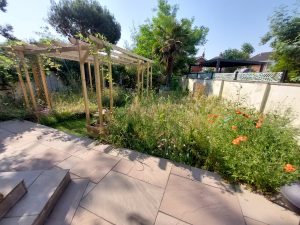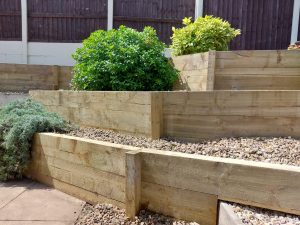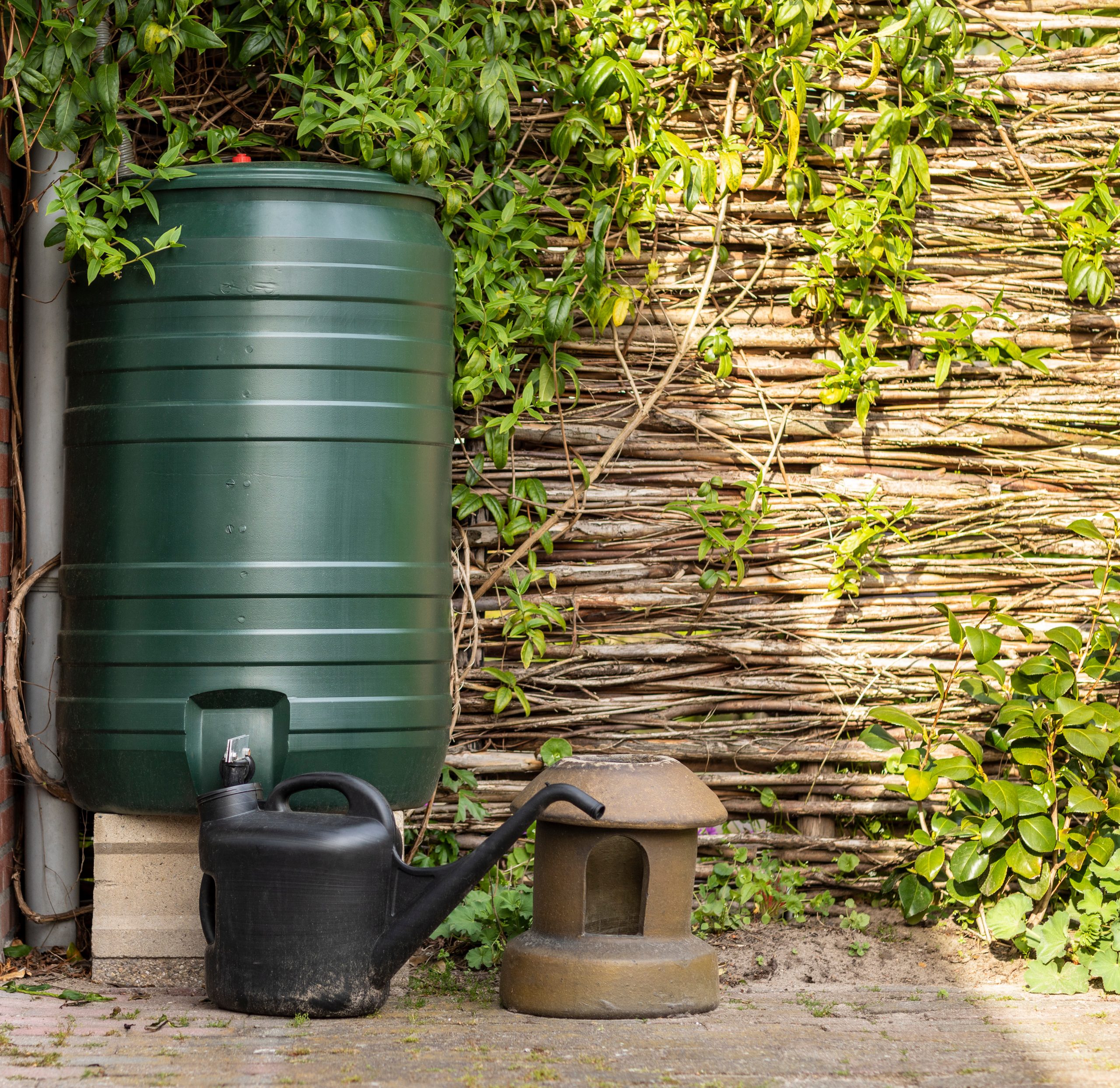In recent years, the importance of creating environmentally-friendly gardens has become increasingly evident and pressing. As climate change becomes a growing concern, we can all take steps to make our gardens more eco-friendly. Not only will this help to reduce your carbon footprint, but you’ll create a beautiful and sustainable outdoor space.
Here at Genesis Gardens, we’re passionate about creating environmentally kind and wildlife-friendly gardens. We’ve put together our top ten changes you can make to your garden to make it more environmentally friendly.
1. Plant Native Species
One of the most important steps you can take towards creating an eco-friendly garden is to plant native species. These plants are adapted to the local environment and will require less maintenance than non-native species. They’ll also provide food and shelter for local wildlife, helping to create a more biodiverse ecosystem.
2. Use Organic Fertilisers
 Many commercial fertilisers contain chemicals that can be harmful to the environment, as you’ll see from the numerous warnings on the pack. Instead, consider using organic fertilisers such as compost or manure. These natural fertilisers will not only help your plants to grow, but they’ll also improve the soil quality and reduce the amount of waste you produce. Creating your own compost heap is an easy step towards a more eco-friendly garden.
Many commercial fertilisers contain chemicals that can be harmful to the environment, as you’ll see from the numerous warnings on the pack. Instead, consider using organic fertilisers such as compost or manure. These natural fertilisers will not only help your plants to grow, but they’ll also improve the soil quality and reduce the amount of waste you produce. Creating your own compost heap is an easy step towards a more eco-friendly garden.
3. Collect Rainwater
Collecting rainwater is a no-brainer! It’s a simple and effective way to reduce your water usage and save money on your household water bill. Simply collect rainwater in a water butt or other container, and use it to water your plants and garden. Your plants will thank you!
4. Install a Drip Irrigation System
Another way to conserve water is to install a drip irrigation system. This type of system delivers water directly to the right parts of your plants, reducing water waste and ensuring that your plants receive the right amount of moisture. This is particularly useful during the hot summer months. The systems are surprisingly inexpensive and easy to install.
5. Compost Your Food and Garden Waste
Composting your food and garden waste is a simple and effective way to reduce waste and create nutrient-rich soil. You can use a compost bin or pile to compost your waste, leave it to rot down and use the resulting compost to fertilise your plants and garden. This will not only reduce your carbon footprint and save you trips to dispose of garden waste, but it will also improve the health of your plants. Many local councils offer subsidised compost bins for residents.
6. Reduce Your Lawn Size
 To be kept in tip-top condition, lawns require significant maintenance, including watering, mowing and fertilising. Consider reducing the size of your lawn or replacing it with our favourite Wildflower Turf, native plants or other low-maintenance ground cover. This will reduce your water usage and the amount of time and money you spend on lawn maintenance. Choosing Wildflower Turf will also make your garden much more wildlife-friendly.
To be kept in tip-top condition, lawns require significant maintenance, including watering, mowing and fertilising. Consider reducing the size of your lawn or replacing it with our favourite Wildflower Turf, native plants or other low-maintenance ground cover. This will reduce your water usage and the amount of time and money you spend on lawn maintenance. Choosing Wildflower Turf will also make your garden much more wildlife-friendly.
7. Use Sustainable Materials
 When building or renovating your garden, consider using sustainable materials such as recycled plastic or reclaimed wood. These materials are eco-friendly and can add a unique touch to your garden design. Check out our helpful blog What are the most sustainable hard landscaping materials for your garden?
When building or renovating your garden, consider using sustainable materials such as recycled plastic or reclaimed wood. These materials are eco-friendly and can add a unique touch to your garden design. Check out our helpful blog What are the most sustainable hard landscaping materials for your garden?
8. Create a Habitat for Wildlife
As we’ve talked about in previous posts, creating a habitat for wildlife in your garden is an important step towards creating a biodiverse ecosystem and more eco-friendly outdoor space. One way to do this is by providing food and shelter for local wildlife. There are plenty of options including bird feeders, nesting boxes, bee-friendly plants, hedgehog houses and bug hotels. Doing this means you will not only provide a home for local wildlife but create a beautiful and natural outdoor space. You’ll find lots of helpful advice in the wildlife section of the Genesis Gardens blog.
9. Use Renewable Energy
If you have outdoor lighting or other electrical features in your garden, consider using renewable energy sources such as solar power. This will reduce your carbon footprint and help to conserve energy. Solar-powered lights and other features are also easy and safe to install as they don’t need any hard wiring.
10. Reduce Chemical Use
Finally, it is important to reduce the use of chemicals in your garden. Many pesticides, herbicides and other chemicals can be harmful to the environment and local wildlife. Instead, consider using natural methods to control pests and weeds, such as companion planting or manual weeding. See our recent post, Natural Pest Control Methods for a Healthy, Eco-Friendly Garden, for advice.
In summary, there are plenty of simple and effective changes you can make to your garden to make it more environmentally friendly. By following even some of our top ten tips, you can create a beautiful and sustainable outdoor space that benefits you and the natural environment.
So, take the first step towards a greener garden today and start making the changes that will help to create a more sustainable future for us all.

